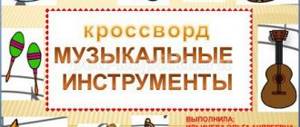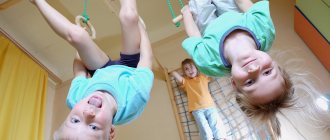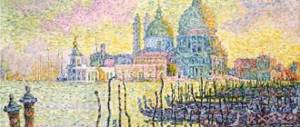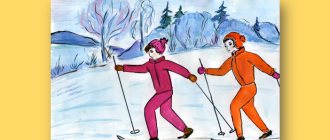Lesson “Bread is our wealth”
Organized educational activities in the preparatory group
“Bread is our wealth"
Target:
to form in children an idea of the value of bread.
Tasks:
—
Expand children's knowledge about the importance of bread in human life;
— generalize students’ knowledge about the process of growing bread;
- pay attention to the content of people’s labor, their coherence and mutual assistance in work, and the mechanization of labor.
- Introduce students to versification using the syncwine method, based on the diagram - model and questions of the teacher.
-Develop coherent speech, the ability to answer the teacher’s questions in full sentences, give reasons for your opinion, and enrich the pupils’ vocabulary.
— Activate the cognitive activity of pupils, their intelligence, memory, attention, imagination, hearing. To instill in children a caring attitude and respect for bread and the people who raised it.
Materials and equipment:
Bread - loaf, model - diagram of cinquain, magnetic board, laptop, screen, illustrations of bread of different nations, ears of rye, wheat, wheat grains, wheat bread, rye bread, pieces of wheat and rye bread on skewers.
Vocabulary work:
enrichment of the dictionary: elevator, agronomist, ear, grain, harrow.
activation of the dictionary: tractor, seeder, combine, rye.
Methods and techniques:
conversation, questions for children, summarizing answers, looking at illustrations, research activities, viewing presentations, working on proverbs, working with diagrams, working with models, didactic games.
Preliminary work:
Conversation about the grain harvest; Examination of illustrations; Learning proverbs, conversation, reading literary works on the topic; Examination of ears of rye and wheat;
Memorizing the poem “Bread”;
Compiling the album “The Long Path of Bread”;
Reading the fairy tale “Spikelet”;
Guessing riddles about bread, grain growers;
Making baked goods from salt dough. Progress of organized educational activities:
Children play the role-playing game “Shop”.
Educator:
Surprise!
Children, look, I brought you something today. (There is a loaf in the box).
The children are coming up. I have a box in my hands. Think about what could be going on here? (Children's answers). Tell me, can we guess what's inside without opening the box? (Children's expected answers: yes, no)
How can we guess
?
(Children's expected answers: we can shake the box. We can smell it. We can try to lift it.) Educator:
Children, one of your answers was that you can smell it. How do we smell? Breathing exercise: inhale air deeply through the nose, exhale through the nose. We inhale through the nose, exhale through the nose. (Repeatedly).
Educator:
Now I suggest you smell our box.
What smell do we smell? (Children's expected answers: The smell of bread. We don't feel anything. The smell of cake.)
If you guessed correctly, let's check by guessing the riddle.
It's easy and simple to guess:
Soft, lush and fluffy,
He's black, he's white,
And sometimes it’s burnt.
Children:
Bread.
I open the box. I take the loaf out of the box.
Educator:
Children, what do you think we will talk about today?
(Children's expected answers: Today we will talk about bread.)
I take the bread and salt in my hands.
Educator:
Indeed, today we will talk about the most important product - bread. The Russian people greet their dearest guests with bread and salt. It is considered a symbol of prosperity and hospitality.
Educator:
Children, what do you like to eat bread with?
(Children's expected answers: Bread can be eaten with butter.
What tasty things can we eat bread with?
Bread can be eaten with honey.
You can eat bread with jam.) Educator:
Let us imagine that we eat bread with jam.
First, let's taste the delicious jam. (Exercise “Jam”).
Now imagine eating some bread with jam.
(Articulatory gymnastics “Chewing”.)
Is it tasty?
Let's show and tell how delicious bread with jam is. Mmmmm, delicious.
Educator:
Bread, bread, bread. He is the most important person on every table. But what else it can be, you will tell me. And a magic ball will help us. We name what kind of bread and pass the ball to a friend.
Didactic game “What kind of bread?”
with a ball .
Selection of definitions for nouns. (Children stand in a circle and pass a ball around and name definitions, for example, ruddy bread, fresh bread, fragrant bread, appetizing bread, soft bread, stale bread, white bread, hot bread, vitamin bread, airy bread, fragrant bread).
After the game, sit the children on chairs in a semicircle.
Educator:
I suggest you sit down in your chairs.
Educator:
What holiday did our country celebrate recently?
Children's answers: National Unity Day.
Educator:
In our Bashkortostan, people of different nationalities live in peace and harmony.
Children, please tell me, what nationalities do people live in our republic? (Children's expected answers: Bashkirs, Russians, Tatars, Uzbeks)
Educator
: That's right, Kazakhs, Armenians, Tatars, Chuvashs and other peoples also live in our republic. They all have their own national bread. The Bashkirs have kolsә, the Russians have loaf, the Caucasian people have lavash, matnakash, the Caucasian bread is baursak, the Chinese have mantou.
I show everything in the picture. The pictures are hung on a magnetic board.
Educator:
Children, has anyone seen how kolsa is baked?
(Children's answers).
When I was still little, my grandmother baked kolso.
Kolsә is mixed with kefir and baked in ash or baked in an oven over hot coals, turning the cakes over. kolso
together .
Individual repetition. Educator:
Bread can be different, but it is always healthy and tasty.
What is bread good for? (Children's expected answers: Bread contains growth vitamins. Bread contains vitamins. Bread is nutritious.)
Educator:
Bread contains vitamin B, which strengthens the nervous system, memory, and improves digestion.
Guys, who knows where the bread came to our table from? (Children's expected answers: They buy it in the store. Mom bakes the bread at home. Grandmother bakes the bread. You can buy it at the bakery.)
Educator:
To obtain flour from grains, you need to spend a lot of labor and effort: first grow rye and wheat, then harvest. When is the harvest harvested?
Children: In autumn.
Educator: That's right, you can say “a miracle of autumn,” because it gives a harvest. This is what grain growers do. Children, I suggest you watch a film about how bread was grown in the old days and now.
View a presentation about how bread was grown in ancient times and now. (Compared).
Educator:
Guys, is there a difference in growing wheat before now?
What is the difference? ( Children's expected answers: Previously, everything was done by hand, now all the work is done by strong agricultural machines.)
Educator:
Do you think it has become easier to grow bread or, on the contrary, more difficult?
(Children's expected answers: Nowadays it is easier to grow bread because strong machines help).
Educator
: - Now we can play. I suggest you sit up near the chairs. I will name professions. If you hear a profession that is related to bread, you clap your hands, if not, then you stomp.
Agronomist, tractor driver, teacher, educator, baker, confectioner, combine operator, manager, salesman, turner.
Educator:
You are very attentive, well done!
Please take your seats. Think about what an agronomist does? ( 's expected answers: The agronomist will check the quality of the grain. The agronomist plans the future harvest. The agronomist determines of harvesting . selects strong grains . The agronomist decides when to sow the seeds. decides when to harvest . The agronomist decides t , when to prepare fields for sowing . )
Repetition of the word agronomist: choral, individual.
Educator:
Children, you and I found out what path the bread took before it reached our table.
Now I propose to become researchers. Let's go to our tables. There are ears of wheat and rye on your tables. Let's repeat the word spikelet together. (Ask several children individually). Take only a spike of wheat in your hands. Repeat: wheat. And this is rye. (I show). Show me a spike of rye too. Let's say together: rye. Let's look at them and compare. Look: they are similar. Expected children's answers: Yes, no.)
How are they similar?
( Children's expected answers: These plants have a stem . They have tendrils . They have a grain . Both are yellow. They are neither grains . )
How are they different?
( Children's expected answers: The tendrils of rye are long, and those of wheat are shorter. The stalk of wheat is thicker than the stalk of rye) .
Educator:
Place the ear of rye on the edge of the table.
Let's consider only a spike of wheat. Try exfoliating in your hands. (We grind). We work carefully because wheat awns are prickly. What is inside? There's a grain inside.
How many grains come out of one spikelet?
( Children's expected answers: I have 5 grains. I have 9 grains.) Ask several children.
Educator:
To bake one loaf of bread, you need about 10,000 grains of wheat.
Educator:
Children, let's see, what kind of grain?
Touch them, what can you say about their size, shape, color, surface? ( Children's expected answers: The grain is small. The grain is hard. The grain is smooth. The grain is oval. The grain is yellow.)
Educator:
Yes, indeed, the grains are very small, so you need a lot of them to get enough flour.
(I show wheat bread and rye bread). Children, look, this bread is baked from wheat flour, and this is from rye flour. Are they different from each other? (Children's expected answer: yes.)
How are they different?
(Children's expected answers: Wheat bread is white, and rye bread is black, gray, dark).
Educator:
Children, I suggest you try wheat bread.
(I distribute white bread on skewers). Now try rye bread. (Children try). Do they taste similar? (Children's expected answers: Wheat bread is tasty, but rye bread is sour).
Educator:
Children, although rye bread is sour, it is very healthy.
Guys, I suggest you go to your chairs. As you have seen, growing bread is very labor-intensive work. That’s why they say, “If you don’t work, you won’t get bread.” We got acquainted with proverbs about bread, about the work of a grain grower. I suggest you play the game “I’ll start, and you continue”
and remember these proverbs. And the ball will help us. Whoever gets the ball calls the end of the proverb. (The teacher says the beginning of the proverb, the children say the end of the proverb).
If you don't work, you won't get bread.
If you want to eat rolls, don’t sit on the stove.
Who does not work shall not eat.
Without bread there is no lunch.
If there is bread, there will be song.
Educator:
Please tell me how you understand the proverb “If there is bread, there will be song.”
( Children's expected answers: When there is bread on the table, everyone feels good. When there is bread on the table, it is fun. If you are full, you are in a good mood. When you eat, you want to sing and have fun.)
Educator:
Children, I offer you another interesting game. Proverbs are hidden in the diagrams. Can you find them and tell them? Let's try.
I show several proverbs schematically on the screen.
Game “Hidden Proverbs”
Bread is our wealth.
Bread is father, water is mother. Bread in your mouth, strength in your hands.
The harvest comes not from dew, but from sweat.
Bread is the head of everything.
Educator:
You know the proverbs very well, well done!
Children, I’ll tell you one incident: once when I was going to work, I saw a loaf of bread on the ground. Someone threw away the bread. Do you think you did the right thing? (Children's answers). Why do you think so? (Children's suggested answers: Bread should not be thrown away. To bake bread, you need to work hard. Bread is the head of everything.)
What would you do? (Children's expected answers:
I would pick up the bread and give it to the birds. I would give the bread to the dog. I would give the bread to the cat. I would put it on the anthill.)
Educator:
That's right, children. Bread must be protected. Because bread is our wealth. Let's now make a beautiful poster about bread. The model - diagram, my questions and these drawings will help you with this. And you will need to remember everything we talked about today. (A model is posted on the board - a diagram for compiling a syncwine).
What we were talking about? (About bread)
What kind of bread? (Answers) Soft, fluffy,
What else? (Answer options) Warm
What is bread for? Eat
How do we get bread? Baking
How should you treat bread? Protect
Guys, let's try to make sentences with the word bread using this model. (Children make sentences based on the model using geometric shapes. Ask several children.)
What is bread compared to in proverbs? Sun, wealth.
Well done boys. Tell me, did you learn a lot of interesting things during the lesson?
After the lesson, I invite you to make baked goods from salt dough.
Conversation about bread (preparatory group).
Conversation about bread ( preparatory group )
.
Goal: To consolidate knowledge that bread
- a most valuable food product, the obtaining of which requires a lot of work.
To cultivate respect for the work of grain growers
and a careful attitude towards
bread
. Teach children speaking skills.
Previous work: reading works of fiction,
memorizing poetry, looking at paintings.
Course of the lesson: Reading a poem by Orlov O
In every grain of wheat, Summer and winter, The power of the sun is stored And the native land. And grow under the bright sky, Slender and tall, Like an immortal Motherland, An ear of bread.
- Guys, you probably already guessed what we will talk about today?
- Yes, about bread
.
— Not a single breakfast, lunch, or dinner is complete without bread
.
Guys, tell me why everyone is advised to eat bread
?
( bread is a nutritious
, healthy, tasty product. Everyone who eats
bread will grow up strong, strong
, and healthy.)
They take out the bread
Smell it, how fragrant and fragrant it is. Let's try a piece. How delicious it is. Even if the bread gets stale
, it doesn’t matter, you can dry it and you get crispy crackers.
And
under no circumstances throw away
of bread the bread
for the birds.
- Who knows where bread
?
—What do you call people who grow bread
?
( growers , collective farmers)
- What makes the work of villagers easier? (cars)
Showing picture:
- Look how flat and large the field is. Who knows what the name of the car that drives across the field is? (tractor)
.
- What do you call a person who works on a tractor? (tractor driver)
— What does a tractor driver do?
Reading Trutneva’s poem “Golden Rain”
— What proverbs about bread do you know?
?
Bread is the head of everything. Without a piece of bread there is sadness everywhere. You won't be full without bread. When the day comes, there will be bread. If only I had flour and a sieve, I would be full. Bitter work, but sweet bread. Buckwheat porridge is our mother, and rye bread is our dear father. They realized that they were left without bread. If there is not a piece of bread, there is sadness in the mansion.
Guys, now I’ll tell you riddles about bread:
At one large factory, It doesn’t look like it’s made of bricks, Bricks are baked in a fire-breathing oven. I bought a brick for lunch, because for lunch I need....(Bread)
Lumpy, spongy, And lipped, and humpbacked, and hard, And soft, and round, and brittle, And black, and white, and sweet to everyone. (Bread)
Appetizing and rosy, the dough is flavored with sour cream. Eat it while it's hot, grandma's fluffy...(Kalach)
The bakery operates seven days a week, year after year. The street smells like vanilla when it bakes... (Bun)
What the riddle is about here, It’s good to eat with tea, It looks like a small loaf And with a sweet filling it... (Roll)
How bread is born
How bread is born. Russians are hospitable people. The bread on the holiday table is always on the table, next to the owner. Dear guests at any holiday, at any event are greeted with bread and salt. But not each of us knows that the loaf needs to be broken, tasted and distributed to people, as custom dictates. Not everyone knows that when taking bread and salt on a towel, you should kiss it. In Russia they have always treated and always treat bread in a special way. And although every nation has its own customs associated with bread, they all talk about caring for bread. How to give children knowledge about where rolls really “grow”, how bread is born, to trace the entire path of bread: from the grain to our table, to see the variety of bakery products? This is what we thought about in kindergarten. Having developed the additional education program “Travel with the Grain”, for the second year now we have been telling our children about how bread is born. After all, obtaining bread is the result of the labor of people of different professions. After all, if a child knows how much work it takes to bring bread to our table, then, of course, he will treat it more carefully. In our village of Gorodishche, children get the opportunity to get acquainted with the professions of people working in agriculture and bread production. Moreover, in our village there is a bakery, which is famous not only throughout the region, but also far beyond its borders! And very often, even in the city, where stores have an abundance of bread brought even from neighboring regions, people ask for and buy our Gorodishche bread! Having agreed with the head of Gorodishche-khleb LLC, Yakov Valerievich Reznikov, the delegation from our group went on an excursion to the bakery. Well, what they saw there, and what they then told all the children in the group about - watch a short video report.
The most interesting thing is that on this day the children were treated to warm, fresh bread at the bakery. So by lunchtime there wasn’t a crumb left of it! The bread turned out to be so delicious, especially when it was baked during the excursion! I think that after our excursions, experiments, and practical classes devoted to getting to know bread, our children will learn to love their native land, understand that the land is the source of our well-being, and will value and respect the work of the grain grower and other people associated with the production of bread. Children will develop the habit of treating bread with care.
And to you, dear parents, I would like to tell you to maintain a careful attitude towards bread at home. After all, everything we talk about in kindergarten will be an empty phrase if the cult of bread and a careful attitude towards it is not supported at home.
Sincerely - Irina Sviridova



